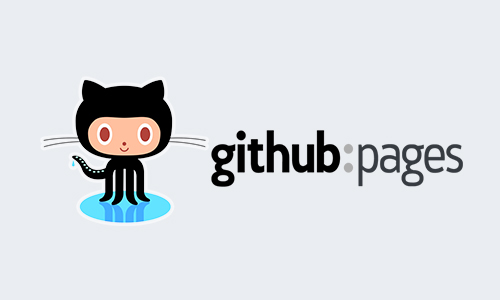GitHub Pages: Building and Hosting Websites with Ease
In today’s digital age, having an online presence is crucial, whether you’re an individual showcasing your portfolio or a business promoting your products. GitHub Pages offers an intuitive and user-friendly solution for building and hosting websites directly from your GitHub repositories. In this blog post, we will explore how GitHub Pages empowers developers to create stunning websites and share their work with the world.
Getting Started with GitHub Pages
To start building your website with GitHub Pages, first, create a new repository on GitHub or navigate to an existing one. Ensure that the repository is public, as GitHub Pages supports hosting only for public repositories. Once you have your repository set up, go to the repository settings and scroll down to the GitHub Pages section to enable GitHub Pages for your project.
Choosing the Right Branch
GitHub Pages allows you to choose the source branch for your website. By default, it uses the main branch, but you can also select a different branch, such as “gh-pages.” This flexibility enables you to separate the website’s code from the rest of your project, ensuring a clean and dedicated space for your web content.
Building Your Website
GitHub Pages supports various methods for building your website. You can choose to create a basic HTML/CSS site, leverage static site generators like Jekyll or Hugo, or even use modern front-end frameworks like React or Vue.js. Select a method that aligns with your skillset and project requirements.
Custom Domain
GitHub Pages allows you to use a custom domain for your website, giving it a more professional and personalized touch. You can purchase a domain from a domain registrar and configure it to point to your GitHub Pages website. GitHub provides detailed instructions on how to set up your custom domain in the repository settings.
Leveraging Themes
GitHub Pages offers a selection of pre-designed themes that you can apply to your website. These themes provide a quick and easy way to give your site a professional and polished look without extensive design work. Explore the available themes, choose the one that suits your project’s aesthetics, and customize it to match your branding and content.
Continuous Deployment
GitHub Pages simplifies the deployment process by automatically updating your website whenever changes are pushed to the designated branch. This enables seamless integration with your development workflow. Simply commit and push your changes to GitHub, and your website will be updated and accessible to visitors.
Collaborative Development
GitHub Pages embraces the collaborative nature of GitHub, allowing multiple contributors to work on the website simultaneously. Leverage branching, pull requests, and code reviews to maintain quality and ensure that changes are thoroughly reviewed before merging into the main branch. This collaborative workflow enhances the development process and encourages teamwork.
Site Analytics
Understanding your website’s performance and visitor statistics is crucial for optimizing your online presence. GitHub Pages integrates seamlessly with popular analytics services like Google Analytics. By configuring analytics tracking, you can gain insights into visitor demographics, page views, and user behavior, enabling data-driven decision-making to enhance your website’s reach and impact.
Version Control for Websites
GitHub Pages leverages the power of Git version control, enabling you to track changes to your website’s code over time. You can easily roll back to previous versions if needed and collaborate with others using familiar Git workflows.
Documentation and Project Pages
GitHub Pages is not limited to personal websites. It also supports hosting documentation sites and project-specific pages. This allows you to create comprehensive documentation for your open-source projects, APIs, or libraries, making it easier for users and contributors to understand and interact with your project.
Markdown Support
GitHub Pages supports writing content in Markdown, a lightweight and easy-to-use markup language. Markdown simplifies the process of creating and formatting content, allowing you to focus on the message rather than worrying about complex HTML tags.
Continuous Integration and Deployment
GitHub Pages can be seamlessly integrated with continuous integration (CI) tools like GitHub Actions or other popular CI platforms. This enables automated testing, building, and deployment of your website whenever changes are pushed to the repository, ensuring the site remains up-to-date and error-free.
Customizing and Extending Your Website
GitHub Pages provides a range of customization options to tailor your website to your specific needs. You can modify the layout, styling, and content to match your branding or add custom scripts and integrations. Take advantage of the extensive ecosystem of plugins and extensions available for various static site generators to enhance your website’s functionality.
Unleashing the Power of Collaboration: GitHub Best Practices
Responsive Design
With the increasing use of mobile devices, having a responsive website is essential. GitHub Pages allows you to create responsive designs that adapt to different screen sizes and devices. Utilize CSS frameworks like Bootstrap or tailor your stylesheets to ensure your website looks great on desktops, tablets, and smartphones.
Continuous Improvement and Iteration
GitHub Pages promotes an iterative approach to website development. You can easily make updates, experiment with new features, and gather feedback from users. Leverage GitHub’s collaboration features, such as issues and discussions, to gather insights, address bugs, and implement user suggestions, continuously improving your website over time.
Showcasing Projects and Portfolios
GitHub Pages provides an ideal platform for showcasing your projects and building your professional portfolio. Create dedicated pages or sections to highlight your work, including project descriptions, images, live demos, and links to the project repositories. This helps you demonstrate your skills and accomplishments to potential employers, clients, or collaborators.
GitHub Pages is a powerful platform for building and hosting websites, providing developers with a convenient and efficient way to showcase their work to the world. Whether you’re a developer, designer, or business owner, GitHub Pages simplifies the process of creating and managing websites, allowing you to focus on crafting exceptional web experiences. Embrace the capabilities of GitHub Pages, experiment with different technologies, and unlock the potential to bring your ideas to life and captivate your audience on the web.

